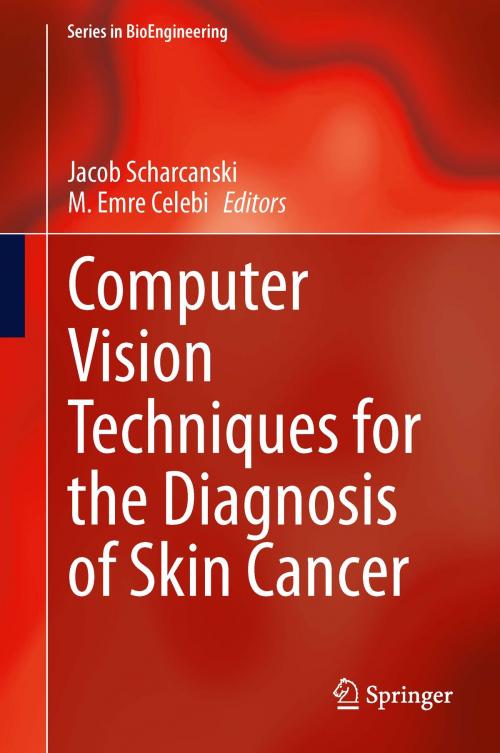Computer Vision Techniques for the Diagnosis of Skin Cancer
Nonfiction, Computers, Application Software, Computer Graphics, Science & Nature, Technology, Engineering, Health & Well Being, Medical| Author: | ISBN: | 9783642396083 | |
| Publisher: | Springer Berlin Heidelberg | Publication: | September 30, 2013 |
| Imprint: | Springer | Language: | English |
| Author: | |
| ISBN: | 9783642396083 |
| Publisher: | Springer Berlin Heidelberg |
| Publication: | September 30, 2013 |
| Imprint: | Springer |
| Language: | English |
The goal of this volume is to summarize the state-of-the-art in the utilization of computer vision techniques in the diagnosis of skin cancer.
Malignant melanoma is one of the most rapidly increasing cancers in the world. Early diagnosis is particularly important since melanoma can be cured with a simple excision if detected early. In recent years, dermoscopy has proved valuable in visualizing the morphological structures in pigmented lesions. However, it has also been shown that dermoscopy is difficult to learn and subjective. Newer technologies such as infrared imaging, multispectral imaging, and confocal microscopy, have recently come to the forefront in providing greater diagnostic accuracy. These imaging technologies presented in this book can serve as an adjunct to physicians and provide automated skin cancer screening. Although computerized techniques cannot as yet provide a definitive diagnosis, they can be used to improve biopsy decision-making as well as early melanoma detection, especially for patients with multiple atypical nevi.
The goal of this volume is to summarize the state-of-the-art in the utilization of computer vision techniques in the diagnosis of skin cancer.
Malignant melanoma is one of the most rapidly increasing cancers in the world. Early diagnosis is particularly important since melanoma can be cured with a simple excision if detected early. In recent years, dermoscopy has proved valuable in visualizing the morphological structures in pigmented lesions. However, it has also been shown that dermoscopy is difficult to learn and subjective. Newer technologies such as infrared imaging, multispectral imaging, and confocal microscopy, have recently come to the forefront in providing greater diagnostic accuracy. These imaging technologies presented in this book can serve as an adjunct to physicians and provide automated skin cancer screening. Although computerized techniques cannot as yet provide a definitive diagnosis, they can be used to improve biopsy decision-making as well as early melanoma detection, especially for patients with multiple atypical nevi.















